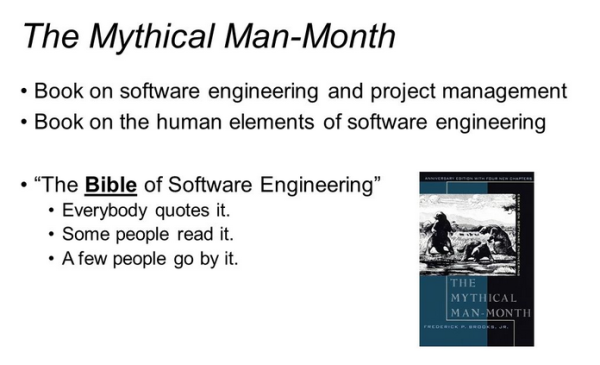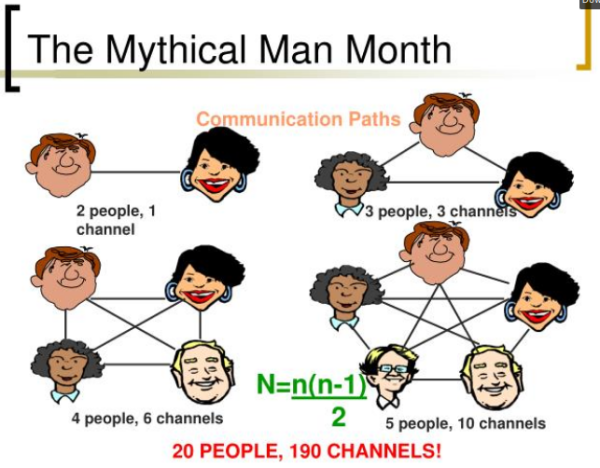Stop Making Excuses and Start Finding Solutions: Lessons from "The Mythical Man-Month"
Are you tired of hearing excuses for why a project can't be done? Are you frustrated with the lack of progress in your projects? If so, you're not alone. Many people struggle with the same issues.
Software development is a complex and challenging field that requires technical skills, creativity, and problem-solving abilities. Even the most experienced developers and project managers encounter obstacles and setbacks.
"The Mythical Man-Month"1 by Frederick P. Brooks Jr. is a classic book that explores the challenges of managing large software projects and offers valuable insights and advice for overcoming obstacles. While the book primarily aims at people working in software development, its lessons can be applied to any project or area of work.
"The key to a successful software project is to stop making excuses for why it can't be done and start finding ways to make it happen."
This quote from the book is particularly relevant for any field that involves managing complex projects, including digital marketing.
The core of project management has not changed yet, and the points Fredric Brook discusses are still relevant today.

Problem-focused to Solution-focused
Brooks argues that successful software development requires a shift from problem-focused to solution-focused thinking. He encourages developers to think creatively and proactively about finding ways to make the project happen rather than focusing on what's holding them back.
Communication and Collaboration

One of the key lessons from "The Mythical Man-Month" is the importance of communication and collaboration. Brooks emphasizes the need for developers to work closely with each other and with other stakeholders, such as project managers and customers, to ensure that everyone is on the same page and working towards the same goals.
Managing Complexity

Another important lesson from the book is the importance of managing complexity. Brooks notes that software development is inherently complex and that managing that complexity requires careful planning and organization. He recommends breaking down the project into smaller, more manageable pieces and tackling them one at a time.
So, how can we apply these lessons from "The Mythical Man-Month" to our work?
Key Takeaways
Here are a few key takeaways:
- Don't make excuses. When faced with a challenge, don't focus on why it can't be done. Instead, focus on finding creative solutions and ways to make it happen.
- Communicate and collaborate. Work closely with your team and other stakeholders to ensure everyone is on the same page and working towards the same goals.
- Manage complexity. Break down the project into smaller, more manageable pieces, and tackle them one at a time.
These lessons are relevant for software developers and anyone working on complex projects, including digital marketers. By focusing on finding solutions, communicating and collaborating effectively, and managing complexity, we can overcome obstacles and succeed in our projects.
Conclusion
In today's fast-paced world, where change is constant, it's more important than ever to be able to adapt quickly and find innovative solutions to problems. "The Mythical Man-Month" provides a valuable framework for doing just that, and its lessons are just as relevant today as they were when the book was first published in 1975.

Whether you work in software development, digital marketing, or any other field that involves managing complex projects, "The Mythical Man-Month" offers valuable insights and advice for overcoming obstacles and finding solutions. So, let's stop making excuses and find ways to make our projects happen.



